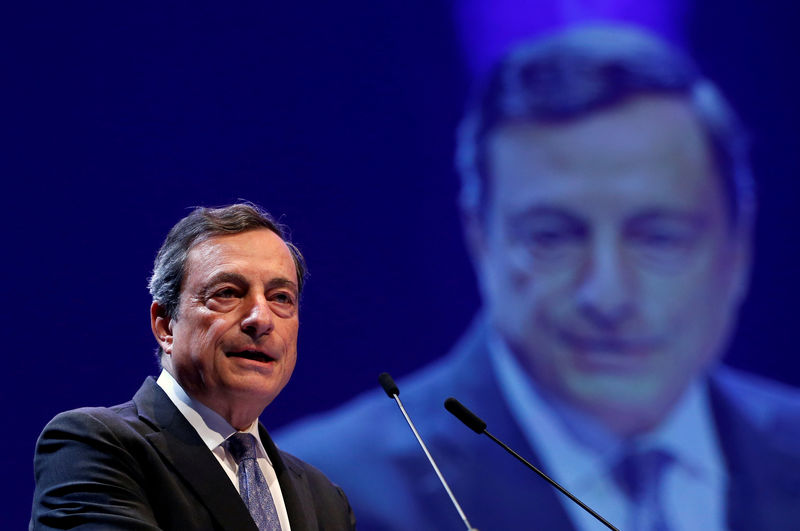By Geoffrey Smith
Investing.com -- Italian bond yields soared on Thursday as Prime Minister Mario Draghi threatened to resign if the 5 Stars Movement stops supporting his government.
The yield on the benchmark 10-Year Italian bond rose 20 basis points by 5 AM ET (0900 GMT) to 3.43%, its highest in two weeks. That widened the spread over the comparable Germany bond - a rough proxy for Eurozone breakup risk - to 218 basis points.
German yields were themselves higher as bond markets everywhere came under pressure from the latest negative inflation shock in the U.S. on Wednesday. Consumer inflation rose to a new 41-year high of 9.1%, prompting some speculation that the Federal Reserve may raise the target range for fed funds by as much as a full percentage point at its meeting on July 27th. Such fears were stoked by the Bank of Canada, which took exactly that step within two hours of seeing the U.S. inflation print, raising its base rate to 2.5% from 1.5%.
The 5 Stars Movement under former Prime Minister Giuseppe Conte has threatened to pull out of the broad coalition under Draghi in protest at the lack of support for lower-income families as they deal with soaring prices for energy and, increasingly, food.
"I'm deeply afraid that September will be a time when families face the choice of paying their electricity bill or buying food," Conte told reporters on Wednesday, as he declared he wouldn't support a Senate vote of confidence in the government on Thursday. The vote is scheduled to start at 8 AM ET (1200 GMT).
Draghi, the hugely influential former European Central Bank President, had become Prime Minister in 2020 not least to ensure the support of EU partners and institutions at a time when Italy's public finances were coming under extraordinary pressure due to the pandemic. They face similar pressures today as the ECB starts to raise interest rates to rein in rocketing inflation. That threatens to increase the cost of servicing Italy's massive sovereign debt pile, reducing the amount of money available for pensions and public sector pay.
Draghi, who lobbied discreetly but firmly for a thorough reform of Italy's heavily statist economic policies while ECB President, has made some progress in implementing structural reforms to improve its debt profile since 2020, but progress has been hampered first by the pandemic and now by Russia's invasion of Ukraine.
The invasion and the economic pain caused by a 60% reduction in Russian gas supplies to punish Italy for its support of Kyiv have aggravated deep-seated divisions in Italian politics, large blocs of which have openly courted Russian support in the past. The legacy of Communist influence in postwar Italy and the enduring tradition of right-wing nationalism from Italy's fascist past both engender sympathy for the Russian cause amid large parts of the population.
That combination of legacy politics and economic vulnerability has made Italy a key battleground as the West struggles to keep a united front against Russian aggression in Ukraine.
